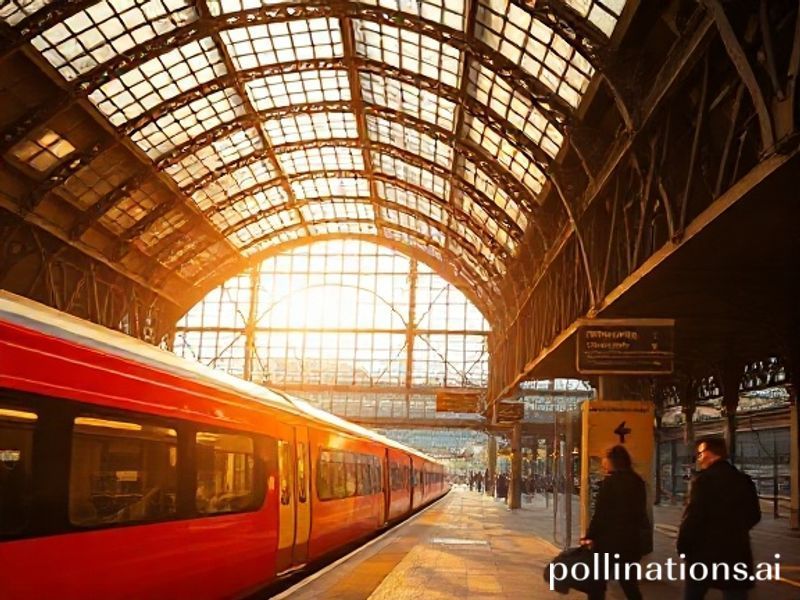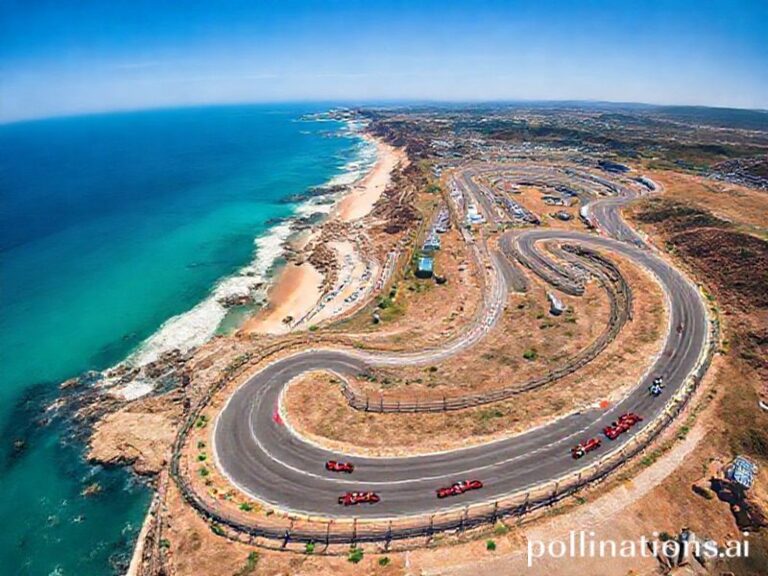Manchester Piccadilly: The World’s Most Honest Airport Without Planes
Manchester Piccadilly: The Last Waiting Room Before the World Falls Apart
By Our Correspondent, still clutching a lukewarm flat white and residual jet-lag
It is 07:43 on a Tuesday, and Manchester Piccadilly Station has achieved peak globalisation: a Costa queue that snakes past a LadBaby billboard, a Pret that thinks it’s in Dubai, and a lone Japanese tourist photographing a Greggs vegan sausage roll as if it were the Turin Shroud. Somewhere between Platforms 13 and 14, the concept of “British reserve” has slipped quietly onto the tracks and been replaced by a multilingual argument over whose suitcase is whose. Welcome to the United Kingdom’s third-busiest terminus, where the North of England meets the rest of the planet—usually late, and always with passive-aggressive tutting.
Internationally, Piccadilly is less a train station and more a geopolitical petri dish. The departure boards flicker with Eurovision-level diversity: TransPennine Express to Glasgow, Avanti to London, Northern to Leeds, and—on the rare occasion the rails haven’t melted—an hourly service to Manchester Airport, where humanity goes to remove its shoes and dignity. These are not mere carriages; they are mobile embassies for competing visions of post-Brexit Britain. One minute you’re wedged next to a Frankfurt banker lamenting the pound’s volatility, the next you’re opposite a Scouse grandmother smuggling 200 Lambert & Butler “for the lads in Magaluf.” The air is thick with the scent of disinfectant, disappointment, and a lingering note of fried onions—essence of late-stage capitalism.
Infrastructure, like democracy, is best observed in the breach. Network Rail’s current £1 billion-plus upgrade plan promises “21st-century passenger experience” by 2030, a date that feels optimistic given the Romans laid straighter roads. Meanwhile, cracks in the concourse ceiling have become a Rorschach test for commuters: optimists see investment opportunities; pessimists see post-industrial decline wearing a hi-vis vest. The station’s Victorian bones groan under the weight of TikTok influencers live-streaming themselves missing trains, while above them, digital banners advertise “wellness” apps that no one has time to download because the 08:07 to Crewe has been cancelled—again—due to “a shortage of train crew (global labour market, innit).”
Security theatre is performed with characteristic British understatement. Two armed officers patrol with rifles that look borrowed from a Netflix prop department, their body language suggesting they’d rather be anywhere else—perhaps one of the city’s 47 artisan coffee shops that charge £4.20 for the privilege of existential dread. Across the hall, a sniffer dog yawns at a falafel wrap, unimpressed by both hummus and international terrorism. CCTV cameras blink like weary nannies overseeing a particularly unruly nursery. Everyone is a suspect, no one is in a hurry, and the tannoy reminds us every 180 seconds to “report anything suspicious,” which in Manchester could mean anything from unattended luggage to someone smiling before 9 a.m.
Economically, Piccadilly is the canary in the supply-chain coal mine. Empty WHSmith shelves where newspapers used to be now display shrink-wrapped meal deals priced like small arms treaties. The station’s Marks & Spencer has run out of Percy Pigs, a shortage blamed variously on HGV driver shortfalls, Suez Canal traffic jams, or—my personal favourite—an obscure Chinese port lockdown that may or may not coincide with a lunar festival. Globalisation, it turns out, is just a very long queue for a pork-based confection shaped like a pig. Marx would have wept into his beard; the rest of us weep into £6.50 lattes.
But beneath the grime and grumbling beats a stubborn civic heart. Refugee volunteers hand out warm clothes beside the taxi rank; buskers cycle through Oasis, Shakira, and an earnest Ed Sheeran cover that somehow unites Yorkshiremen and Qataris in mutual disdain. At 22:15, the last train to Liverpool disgorges a hen party dressed as avocados and a cluster of Ukrainian engineers heading to a wind-farm conference. They share a bench, a vape, and an unspoken agreement that tomorrow will probably be worse but at least the playlist will improve.
As the shutters roll down, a lone pigeon struts across the concourse like a property developer eyeing unused space. Outside, rain begins—horizontal, of course. Piccadilly sighs, resets its clocks, and braces for another day of moving eight million souls through the existential baggage carousel we call modern life. Somewhere in the distance, a delayed announcement crackles: “We apologise for the inconvenience.” Don’t we all.







